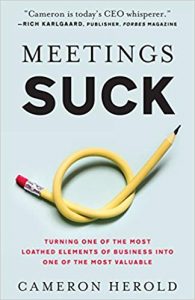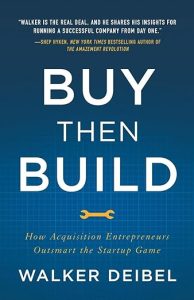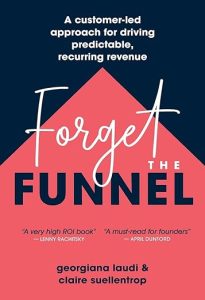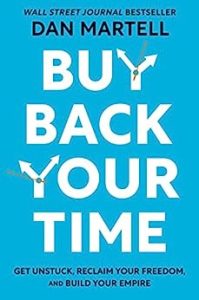I recommend this book for anyone who is in a leadership position at their job. Meetings can be a great tool or a huge waste of company resources, but the difference is how you use them. If you run a small business this book is invaluable because you get to set the culture of your company and the meeting flow is a big part of that.
What I really like about Cameron Herold’s Meetings Suck is the short and concise chapters. The topic itself is pretty simple and I am glad he didn’t try to make this book 300 pages.
Each chapter gives practical advice for which type of meetings you should have, how to run them and common mistakes to avoid.
I was glad to read that Carrot has most of these meetings on the books and we run them in a very similar way. We did borrow the meeting cadence from a business coach so who knows, maybe this book influenced what we were taught.
This is a quick and easy read. If you feel like your employees (or yourself) are bored at meetings, not getting value from meetings, or feel they are a waste of time, read this book.
Biggest Insights
- Make your meeting culture a place where people can opt-out of a meeting if they won’t/don’t provide value.
- State what type of meeting it will be beforehand (informational, decision making, brainstorming, etc.)
- Put time allotments on meeting agenda items
- Have someone keep time and be VERY strict about speaking up when the time is up
- Leadership retreats should both train and challenge leaders while they are out of the office for the meeting
- Keep the energy up on meetings – the daily huddle should be around 11:00 am when energy tends to suffer
- Excuse yourself from a meeting if you won’t provide value
Summary of Meetings Suck by Cameron Herold
Meetings Suck by Cameron Herold is a practical guide that aims to change the perception of meetings and transform them from time-wasting obligations into productive and engaging sessions. Herold argues that meetings aren’t the problem—badly run meetings are. He offers strategies and tools to improve how meetings are organized, conducted, and attended, emphasizing the importance of education on effective meeting management.
Key Concepts:
- Why Meetings Matter:
Herold starts by explaining that meetings are essential to business operations, helping teams align, solve problems, and make decisions. The problem, he argues, is not that meetings themselves suck, but that most people don’t know how to run or participate in them effectively. He points out that meetings, when done well, can save time, foster collaboration, and drive results. - Types of Meetings:
The book breaks down different types of meetings and explains their specific purposes. Herold highlights that every type of meeting should have a clear intention, format, and expected outcomes. Common types of meetings include:- Strategy meetings: Focus on long-term goals and planning
- Project meetings: Center around specific tasks or initiatives
- Daily check-ins: Short, focused updates to maintain alignment
- One-on-ones: For direct conversations between managers and team members
- Quarterly reviews: Reflect on past performance and set future priorities
- Pre-Meeting Preparation:
Effective meetings begin with preparation. Herold stresses that a well-run meeting starts with a clear agenda sent to participants in advance. The agenda should outline the purpose, topics to discuss, and desired outcomes. This allows participants to come prepared, knowing what to expect and how to contribute meaningfully. - Roles in a Meeting:
Herold highlights the importance of role clarity during meetings. He identifies three key roles:- The Leader/Facilitator: This person keeps the meeting on track, guides the agenda, and ensures everyone has a chance to contribute.
- The Timekeeper: Responsible for ensuring the meeting stays within the set time limits.
- The Participants: Each attendee is responsible for contributing actively and respectfully, coming prepared, and following up on assigned tasks post-meeting.
- The Value of Time:
One of the key themes in Meetings Suck is valuing time. Herold emphasizes that time is a company’s most valuable resource, and wasting time in poorly organized meetings leads to lost productivity. Meetings should have a set duration, and every minute should be spent with purpose. He also argues that it’s okay to end a meeting early if the objectives have been met, rather than dragging it out unnecessarily. - Engaged Participation:
Herold stresses the importance of engaged participants who take ownership of their role in a meeting. This includes active listening, contributing ideas, and being accountable for follow-up tasks. He advises against multitasking (such as checking phones or laptops) during meetings, as it leads to disengagement and wastes everyone’s time. - Post-Meeting Follow-Up:
After a meeting, it’s essential to ensure that the outcomes are followed through. Herold recommends sending a summary of the meeting’s key points, decisions made, and action items with deadlines assigned to specific individuals. This accountability ensures that meetings lead to real progress and that time spent is productive. - Virtual Meetings:
Herold also addresses the growing trend of virtual meetings, offering specific advice for running them effectively. He suggests using video whenever possible to create a sense of connection, keeping participants engaged, and following all the same principles that apply to in-person meetings. - Culture of Effective Meetings:
The book encourages creating a company-wide culture of productive meetings by training everyone on how to run, contribute to, and evaluate meetings. Herold suggests that if employees understand the structure and purpose of meetings, they’ll appreciate their value and stop viewing them as a waste of time.
Conclusion:
Meetings Suck by Cameron Herold is a practical, no-nonsense guide to transforming meetings from dreaded, unproductive events into valuable opportunities for collaboration and progress. Herold emphasizes that meetings, when run effectively, can save time, foster innovation, and drive results. He provides actionable advice on how to prepare, run, and follow up on meetings, making them a vital tool for business success rather than a drain on resources. This book is a must-read for leaders, managers, and employees who want to improve their meeting culture and boost team productivity.
Join The Newsletter
Get occasional emails from me when I publish new projects and articles.



